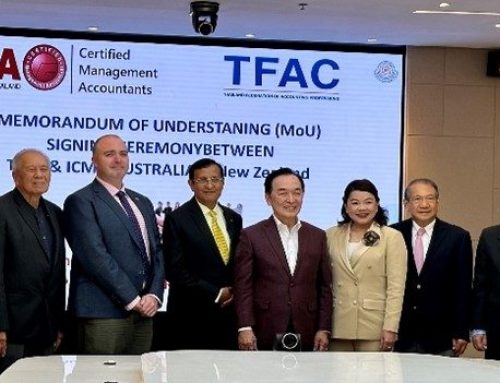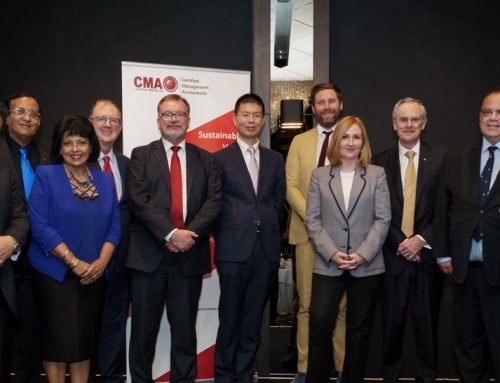“Skills Australia’s decision to remove accountants from the shortage list based on advertised vacancies has some overall merit, but the reasons for this are quite complex, and there are many nuances to explaining the fall in vacancies”, says Prof Janek Ratnatunga, the CEO of the Institute of Certified Management Accountants (CMA ANZ).
The National Skills Commission has undertaken extensive research and found that three categories of accounting jobs – general accountants, management accountants and taxation accountants – are all experiencing “no shortage” and are expected to experience only “moderate” future demand in the latest Skills Priority List (SPL) released on 6 October 2022.
“This fails to reflect the complexity of the employment market.” says Professor Ratnatunga.
The SPL is often a precursor to the ‘Skills Occupation List (SOL)’ that is used to control migration requirements to Australia, which then impacts ecosystems that feed off migration such as the many professional and technical bodies who see migrants as an important source of membership growth, higher education and TAFE bodies that rely heavily on overseas fee-paying students; and employment agencies who make commissions by handling migrant applications. To the accounting ecosystem, there will be a significant impact if those seeking migration cannot attract ‘points’ by pursuing accounting careers.
“While there are many migrants who have joined the job hunt for accounting roles, too many of these do not possess the requisite soft skills to succeed in the Australian market,” says Professor Ratnatunga.
“Consequently, they end up in para-accounting roles or, even worse, driving taxis, Ubers, or flipping burgers. So, the result is that there are plenty of job applicants for roles, especially junior ones that are not advertised but are more word-of-mouth, which gives the impression that there is no shortage when the reality is quite different.”
“It is the lack of suitable candidates for the demanding accounting roles reflecting the new world of work that is the problem.”
“Another issue is that many contemporary job advertisements in the accounting field no longer use the term, “accountant”. Instead, they will use terms such as “financial analyst” and” data analyst.” This means that Skills Australia may have effectively under-counted the number of job vacancies in our field by using narrow search terms. Our members who are employers are telling us that they are having trouble filling positions with suitable candidates, and that they are losing staff to competitors for significantly higher salaries. This evidence is consistent with a shortage of accounting-related staff.”
“Overall, Skills Australia was right in saying that there is no shortage of accounting graduates in Australia in absolute terms. However, there is a huge difference between accounting graduates that possess the requisite skills set for success and the absolute number of qualified accountants produced from our university system or skilled migration. Moreover, the Skills Australia data may not fully capture the full number of vacancies given the widening terms used in job advertisements. Mixing the two leads to the distorted picture of reality,” says Professor Ratnatunga.
Research undertaken by CMA(ANZ), the peak body for management accountants in Australia and New Zealand, has found that a lack of high-level communication skills, insufficient connections in the local labour market and a lack of experience working in the Australian system all combine to inhibit migrant accountants’ chances of obtaining suitable employment.
The issue is more acute for management accountants as high-level specialist skills are required to succeed in their roles.
“Many people mistakenly believe that a management accountant is the same as a general accountant. This could not be more wrong. To be successful in a management accountant role, one must process high-level technical skills in IT, data analytics, strategic analysis and environmental, social, and governance (ESG). Unfortunately, the accounting education at universities and at generalist accounting bodies often do not provide sufficient high-level coverage in these areas.”
A rosy picture of job prospects has continued to be painted to potential immigrants for many years that jobs abound for accountants in this country. The reality is that this is only the case for those experienced accountants who possess the appropriate skills sets.
“Migrants are still leaving senior, well-paid accounting jobs in their own countries with a promise of a great lifestyle in Australia, only to find that they are being reduced to jobs not relevant to their skills”, says Professor Ratnatunga.
“This is not only false advertising of a promise of a non-existent lifestyle, but it is also not good for Australia’s image overseas as a country that gives a fair-go.”
“Hopefully, the Skills Australia list will stop many professional bodies, universities, and employment agencies from painting such a rosy picture of job prospects and provide a more realistic view of the job market in Australia. Also, assessing that management accountants require a no greater skill set to a general accountant is doing a dis-service to Australian employers who are crying out for properly qualified job applicants”
“More needs to be done to better prepare accountants, especially management accountants, for the new world of work. Without these efforts the mismatch between reported staff shortages in accounting and a large pool of under-utilised talent will continue to exist.”
[End]For further comment on the above topic, please contact:
Prof Janek Ratnatunga
CEO, ICMA Australia & NZ
Mobile: +61432758380
Email: [email protected]
About the Author
Professor Janek Ratnatunga is the CEO of the Institute of Certified Management Accountants, Australia & NZ. He has held senior appointments at the University of South Australia, Monash University, University of Melbourne, and the Australian National University in Australia; and the Universities of Washington, Richmond and Rhode Island in the USA. Prior to his academic career he worked as a chartered accountant with KPMG. He has also been a consultant to many large Australian and international companies and to the World Bank.



Stay In Touch